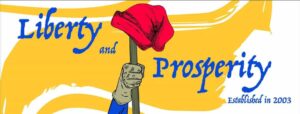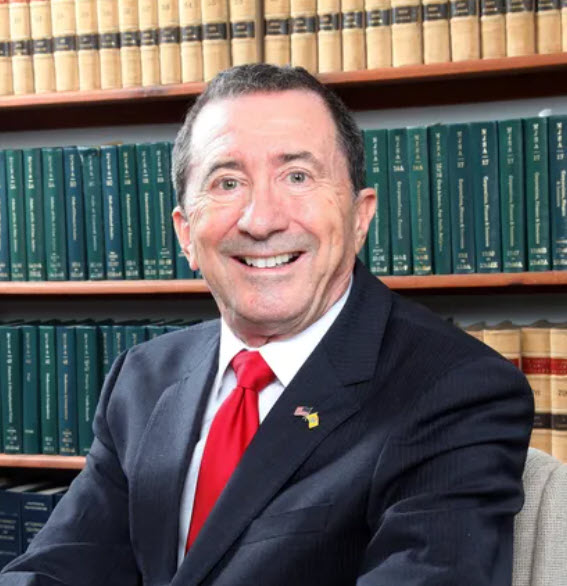The Press of Atlantic City claimed in its headline that Richard Stockton, one of the 56 signers of the Declaration of Independence, was a slave owner. Because of that, his statue was removed from display at Stockton University. But was he? And if he were, should that fact alone deny him recognition and admiration?
Richard Stockton was born in 1730 near Princeton, New Jersey. He became a lawyer in 1754 at age 24. Three years later, he married Annis Boudinot. Annis Boudinot Stockton was a well poet, whose works were published and read throughout the 13 colonies. Click here for his complete Wikipedia biography.
In 1766 at age 36, Stockton traveled to England, Scotland, and Ireland. There he campaigned for the repeal of the British “Stamp Tax” on the recording of public documents and sale of newspapers in the American colonies. The campaign was successful and the Stamp Tax was repealed.
When Richard Stockton returned to New Jersey in 1768, he was appointed to the NJ colonial Senate and then to the Supreme Court. In 1776, Stockton was elected to the Second Continental Congress.? On July 2, 1776, Stockton became the first NJ delegate to sign the Declaration of Independence.? By signing that document, he declared himself a traitor to the British Empire, subject to a slow painful death, and seizure of all property from his next of kin.
During the next four months, Stockton visited Continental Army and local militia units in New England, and reported their strengths, weaknesses, and needs to the Continental Congress.
Upon returning to New Jersey, Stockton was betrayed, captured at night in his Princeton home, and transported in the cold with almost no clothing to British headquarters near New Brunswick.
Stockton was offered a “full and free pardon” if he would pledge allegiance to the king of England. However, he refused. Stockton was deprived of food, put in irons, and kept in an unheated British prison in New York where 12,000 American prisoners eventually died during the next eight years of war.
Stockton was released a few months later after the personal intervention of George Washington and the Continental Congress. British loyalists (including a distant cousin also named Richard Stockton) claimed Stockton was released because he later signed papers renouncing American independence and pledging loyalty to Britain. Stockton’s family fiercely denied this claim as vicious pro-British propaganda. Because this controversy, many reports about him made at the time may not be true.
However, it is agreed that Richard Stockton never fully recovered his health. He was sick and in constant pain until he died in 1781. His house was occupied by the British army as a headquarters. Most of his possessions were seized or destroyed by the British.
There appear to be no official reports that Stockton owned slaves. There is an official probate record showing that a younger Richard Stockton, possibly one of Stockton’s six children or a distant cousin “had several slaves, freeing one in 1823”.
It is well known that Richard Stockton was an active Quaker, a religious sect that openly opposed slavery since the 1750’s. Quakers actively harbored and helped runaway slaves even before the “Underground Railroad” and the Civil War. Some of Richard Stockton’s closest relatives established abolition of slavery organizations in Princeton. Because of them, New Jersey did in fact outlaw slavery shortly after the American Revolution.
Richard Stockton’s grandson Robert commanded a navy ship that captured slave ships and freed slaves when importing new slaves from Africa was outlawed in 1808. Later, Robert Stockton was instrumental in keeping slavery out of California during our war with Mexico. The city of Stockton, California is named after him.
Bruce Carlson, a Stockton student in the 1990’s commented on our Liberty and Prosperity Facebook Page that he found evidence that Richard Stockton owned a slave named “Marcus”, while researching the history of Stockton’s home called Morven, the official residence of five New Jersey governors. According to Carlson, Stockton’s slave became an apprentice pharmacist for Dr. Benjamin Rush, one of America’s most respected physicians at the time. Benjamin Rush was also a signer of the Declaration of Independence.
Did Richard Stockton own slaves? Was Marcus a slave for life? Or was he an indentured servant like many whites at the time? Was he an apprentice like Benjamin Franklin and George Washington who were legally controlled by their master for the length of a contract as the price of learning a useful trade? Did Stockton like other Quakers “buy” slaves so they could legally move them from place to place, educate them, and prepare them for freedom? At the time, many free blacks were afraid to travel for fear of being falsely accused of being a runaway slave and put in slavery. Some free blacks avoided this by agreeing to be “slaves” who were legally owned by sympathetic whites who gave them legal protection.
Should Richard Stockton be condemned for what he did? Should his statue be removed from Stockton University?
Whether Richard Stockton owned slaves or not, he did sign The Declaration of Independence. A giant mural of that Declaration is painted on a wall facing the main Student Center. However, it is painted in a way that makes its words impossible to read.
The U.S. Declaration of Independence declared these “truths” to be “self-evident”: ? “All men are created equal and endowed by their Creator with certain unalienable rights. . .? Among these are life, liberty, and the pursuit of happingess. . . To secure these rights, governments are instituted, exercising their just powers with the consent of the governed. . .? Whenever government becomes destructive of those ends, it is the right of the people to alter or abolish it. . . ”
Those words inspired New Jersey to abolish slavery shortly after the Revolution. That Declaration (and other actions by most Founding Fathers including abolishing slavery in the Northwest Territories in 1787, and adopting a Constitution that limited the voting power of slave states in the federal government and allowed Congress to stop bringing new slaves into America in 20 years) later convinced Abraham Lincoln that most of America’s founders supported the “ultimate extinction” of slavery in America. LibertyAndProsprity.org
We are a group of roughly 200 citizens who mostly live near Atlantic City, New Jersey. We volunteer our time and money to maintain this website. We do our best to post accurate information. However, we admit we make mistakes from time to time. If you see any mistakes or inaccurate, misleading, outdated, or incomplete information in this or any of our posts, please let us know. We will do our best to correct the problem as soon as possible.
Also, because Facebook, Twitter, and other social media platforms falsely claim our posts violate their “community standards”, they greatly restrict, “throttle back” or “shadow ban” our posts. Please help us overcome that by sharing our posts wherever you can, as often as you can. Please click the social share links below. Also copy and paste the link to the “comments” section of your favorite sites like Patch.com or PressofAtlanticCity.com and email them to your friends. Thanks.
Seth Grossman, Executive Director
LibertyAndProsperity.com
(609) 927-7333


It should probably be noted that Benjamin Rush was the son in law of Richard Stockton, as he married Stockton’s daughter, Julia. I am a non-direct descendant of both of them. Of course, this could be used to support either argument that Stockton was helping Marcus’ education or that he viewed him more like property to be passed around to family. I would think that Stocktons membership as a Quaker would allay any concerns.
I agree 100% with Danielle Almquist. The Stockton family was 100% Quaker and 100% for the abolition of slavery. I believe Richard Stockton’s grandson was a navy ship commander who played a very active part in working with the British Navy to end the slave trade from Africa, as soon as Congress made it illegal in 1808.
It is absurd to bring ‘political correctness” to bear on one of the most important founders of of our country. Applying ‘ modern standards’ to those who lived in the past undermines the historical significance of how our nation was founded. The college is wrong in removing his statue without any proof of his actions or motives. An explanation could have been mounted near the statue to explain the historical question. As an institution of higher “learning” [???} the college has a responsibility to teach the truth of our history not to cave in and rush off to hide something it feels is possibly going to offend someone. Thank goodness the college administration has no control over our national monuments or the Washington Monument and Jefferson memorial would have been removed and the name of our capital changed [we all know that Jefferson and Washington owned slaves]. It is about time people view historical figures in the light of their own times and not try to make them fit into modern categories. This statue removal encourages ignorance and reflects very badly on our educators.
My thoughts as well. Also Benjamin Rush is my 5x great grandfather! So Hello!
Commodore Richard F. Stockton sailed to California and participated in the “action” by the United States to prevent Mexican ownership of the territory (Mexican-American War). It is reported that his leadership in the war led to the naming of Stockton, California, the first non-Hispanic city name in the territory.
Robert F. Stockton. Sorry it was a typo.
That was the grandson of the Richard Stockton who signed our Declaration of Independence. Before becoming a hero in the War Against Mexico, Robert Stockton was the first U.S. Naval Officer to capture slave ships and free their slaves starting in 1808. The entire Stockton family were Quakers who consistently opposed slavery. They often did this by buying slaves, giving them education and training needed to support themselves and then freeing them to lead independent, self-sufficient lives. Because they technically owned slaves from time to time, Stockton University removed the statue of its namesake, Richard Stockton in 2017.
Richard Stockton is my 4x great grandfather, I just recently found this out. Life is crazy!
Richard Stockton was signer of Declaration of Independence and namesake of Stockton University near Atlantic City, NJ. Stockton recently removed a statue of Richard Stockton when a leftist professor claimed that he must of owned slaves because he referred to slaves his will. However, Richard Stockton and his whole family were Quakers to dedicated their lives to ending slavery. They often bought slaved in order to give them education and vocational skills before setting them free. Also, because free blacks were sometimes kidnapped and falsely claimed to be runaway slaves, Quakers sometimes “owned” them so they would be protected if they travelled. Are you also related to Robert Stockton, Richard Stockton’s grandson? Robert began as a naval officer who captured slave ships after they became illegal in 1808, and he returned slaves to freedom in Africa. He was also an army officer in the Mexican War who made sure slavery was kept out of California. Stockton, California is named after him.
Strongly agree with your opposition to historicism and historical revisionism! thank you for providing this clarity.
Welcome cousin!
Benjamin Randals Stockton